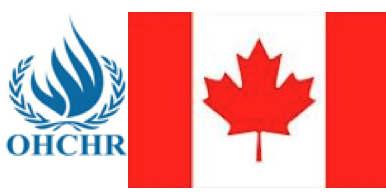Women and girls must be at the core of disaster risk reduction (DRR), given that they often “bear the brunt” of climate change and hazards, said participants during a special session on gender-related dimensions of disaster risk reduction (DRR) and climate change, convened by the UN Committee on the Elimination of Discrimination against Women (CEDAW).
The half-day session discussed DRR and climate change in the context of provisions of the Convention on the Elimination of All Forms of Discrimination against Women.
 1 March 2016: Women and girls must be at the core of disaster risk reduction (DRR), given that they often “bear the brunt” of climate change and hazards, said participants during a special session on gender-related dimensions of disaster risk reduction (DRR) and climate change, convened by the UN Committee on the Elimination of Discrimination against Women (CEDAW). The half-day session discussed DRR and climate change in the context of provisions of the Convention on the Elimination of All Forms of Discrimination against Women.
1 March 2016: Women and girls must be at the core of disaster risk reduction (DRR), given that they often “bear the brunt” of climate change and hazards, said participants during a special session on gender-related dimensions of disaster risk reduction (DRR) and climate change, convened by the UN Committee on the Elimination of Discrimination against Women (CEDAW). The half-day session discussed DRR and climate change in the context of provisions of the Convention on the Elimination of All Forms of Discrimination against Women.
The special session aimed to help the Committee prepare a ‘General recommendation on gender-related dimensions of disaster risk reduction and climate change,’ which will provide guidance on adopting measures to protect and fulfill women’s human rights in the context of disaster and climate change.
The event discussed, inter alia: the rationale for such a general recommendation by the Committee; mainstreaming gender into international instruments on climate change and DRR; and specific issues on the gender-related dimensions of climate change and DRR and obligations under the Convention.
During the half-day session, Robert Glasser, Head of the UN Office for DRR (UNISDR), underscored that the Sendai Framework for Disaster Risk Reduction 2015-2030 puts the issue of gender “squarely in the spotlight.” Glasser noted that the Framework, which was adopted in March 2015, aims to save lives and curb the economic impact of natural and man-made hazards, and emphasizes human rights, gender equality and climate change adaptation.
He said that gender is a key component of the Framework’s shift from managing disasters to managing risk and addressing the underlying causes and drivers of disasters, which lie in “ill-conceived development policies, practices and investments.” Glasser called for addressing gender equality gaps, including participation in decision making and resource management, and access to social protection measures, education, health and early warning. He said more precise information and disaggregated data on the impact of disasters are needed to undertake corrective measures, as disasters affect men and women differently due to, inter alia, socioeconomic conditions, cultural beliefs and traditional practices.
Nahla Haidar, CEDAW, said women must not be viewed as vulnerable victims, but rather as active actors. Elena Manaenkova, World Meteorological Organization (WMO), pointed out that more women than men died in the 2004 Indian Ocean Tsunami because they were less likely to know how to swim and long clothing hampered their movement.
The session took place on 29 February 2016, in Geneva, Switzerland, on the sidelines of the 63rd session of the CEDAW, which is meeting in Geneva, Switzerland, from 15 February to 4 March 2016.
During a related event, convened by Canada on 1 March, Canada’s Minister of Foreign Affairs Stéphane Dion underlined that climate change affects women and men differently and has a gender-differentiated impact, calling for the application of gender analysis to meet the needs of women and men when mitigating the impacts of climate change. Glasser, also speaking at the Canadian event, stated that women and girls play an important role in designing solutions to the problems that they and their communities face in a wide range of contexts. Fiji’s UN Ambassador Nazhat Shameem Khan warned that the aftermath of disasters will be exacerbated if women are not partners in resilience building.
CEDAW is the body of experts that monitors implementation of the Convention on the Elimination of All Forms of Discrimination against Women, which was adopted in 1979 by the UN General Assembly (UNGA). Parties to the Convention submit regular reports to the Committee on how the rights of the Convention are being implemented. The Committee, inter alia, formulates general recommendations, which are directed to countries and concern specific articles or themes in the Conventions. Responsibility for servicing the Committee falls under the Office of the High Commissioner for Human Rights (OHCHR). [UN Press Release] [Remarks by Head of UNISDR to CEDAW] [UNISDR Press Release, 29 February] [UNISDR Press Release on Canadian Event] [Special Session Webpage] [Special Session Concept Note]